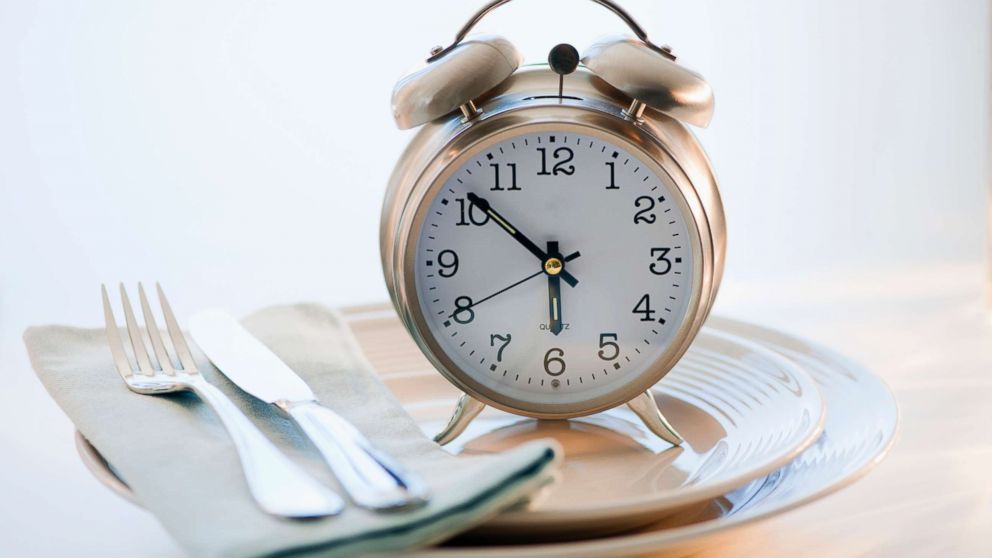
It’s Not Just What You Eat. When You Eat Can Make Or Break Your Diet
What if the time you eat was quietly sabotaging your weight, sleep, and health--even if your calories stayed the same?
Dinner is often the biggest meal of the day. We eat at 8 p.m. or later, often just an hour or two before bed. It’s the first chance to sit down after a long day of work, errands, workouts, or kid-wrangling..
Others eat earlier, but then snack before bed. Either way, most of our calories are consumed late in the day, and that timing has implications.
Studies find that late eating affects your weight
👉Dieters who ate their calories earlier in the day, rather than at dinner, lost an average of 4# more.
👉Two groups ate the same diet (1400 calories per day) with identical lunches. One had abig breakfast, the other abig dinner. After 3 months, thebig breakfast grouplost 19 lbs. while thebig dinner grouplost 8.
The breakfast group lost more belly fat, had better blood sugar levels, and reported feeling less hungry later in the day.
Calories eaten late are more likely to be stored as fat rather than used for fuel.
It's that circadian rhythm...again!
Your metabolism runs on a rhythm. As the day winds down, your body prepares for rest, not digestion. Genes that promote fat storage ramp up, while those that support fat burning power down. Your body shifts into “store” mode, not “burn.”
👉 Late eating disrupts appetite hormones. Ghrelin (your “I’m hungry” signal) rises, while leptin (your “I’m full” signal) drops. People who ate late were twice as likely to feel hungry the next day.
👉 Digestion burns calories but far fewer at night. In one study, the thermic effect of food was highest in the morning, and lowest in the evening. Same food. Fewer calories burned processing it.
👉 That late dinner doesn’t just affect your night. Study participants who ate late had 5% lower 24-hour energy expenditure and a lower core body temperature (a sign of slowed metabolism).
That’s like sneaking in an extra 110 calories per day.
What the Clock Does to Your Health
Late-night eating doesn’t just affect your waistline. It’s been linked to higher risks of:
👉 Type 2 diabetes Another study suggests an early breakfast, rather than early dinner, might be the real protective factor.
👉 Higher triglycerides, lower HDL cholesterol, higher LDL cholesterol
👉 Poor sleep and acid reflux
👉 Certain cancers People who ate within 3 hours of bedtime at least 4 days a week had twice the odds of developing precancerous bowel polyps, even after adjusting for other risks.
In large studies, people who regularly ate dinner after 9 p.m. had higher odds of developing diabetes and stroke, while those who finished dinner 2 or more hours before bed had lower risks of breast and prostate cancer.
It's all likely related to circadian rhythm disruption.
Interestingly, people with a “morning chronotype” (who wake early and sleep early) have alower risk of certain cancers, including breast and prostate. We see a similar effect with night shift workers.
Our internal clocks expect food during daylight hours. With late eating, the body’s repair, detox, and recovery systems can’t work efficiently, leaving metabolism, hormones, and even cell health out of sync.
Your body doesn’t just care what you eat — it cares when.
👉Finish dinner at least 2–3 hours before bed. Four is even better.
👉Make breakfast and lunch your main meals. That’s when your body burns energy most efficiently.
👉If you’re hungry later, have a light, protein-based snack (150–180 calories).
If you can't eat dinner earlier, move a portion of your dinner to your afternoon snack or prep meals ahead so you can eat sooner once you’re home.
Like many things in life,timing is everything!